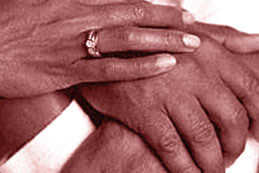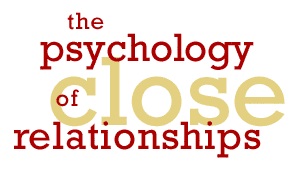










|
Your scored 0 .
Some traits and skills serve better in getting along in groups and with non-intimates, such as generosity, diplomacy and friendliness. These
are relatively socially-oriented characteristics to choose. Others are more important in intimate relationships like close
friendship and marriage, such as being nurturing, sensitive and a good partner. Both are valuable and important -- but this self-report
forces you to make choices that real life does not necessarily require!
The higher your score, the more "socially" oriented your relationship-skill wish list is. The lower your score, the more
"personally" oriented your desired traits may be. If you scored +7 to 10, you are highly social; +3 to 6, moderately social;
-2 to +2, a balance of social and personal orientation; -3 to -6, moderately personal orientation; and -7 to -10,
extremely personal orientation.
So which do you aspire to be: more social? or more personal? Why do you think you have these aspirations?
Caveat spectatus: Let the test-taker beware! No self-report technique can really tell you anything about yourself that you did not already know. But a
checklist like this can be an interesting method for organizing that self-knowledge in a new way and achieving insights into yourself. In
this case, how much do the words you choose reveal about yourself -- and how much do they leave out? For example, "sensitive" here is
scored as a personal quality but in many types of jobs, a sensitive person is also better at handling relations with non-intimates such
as colleagues and employees. Always use a self-report technique like a survey or checklist as a starting point, not a final exam!
It's a way for you to begin to learn about aspects of your thoughts, feelings, and behaviors -- it's not a score that sums up anything
once and for all.
Affiliation: Just Another Warm Body
As noted in Session One, humans, like many other species, are social creatures. We not only like but need each other for love,
companionship, assistance, even our very sense of reality. Many of our needs are met by the mere presence or simple interactions with
others. Early in life, for example, just being close to other warm bodies is sufficient; we don't get too picky or demand that those
others be especially attractive. Babies pushed along in strollers seem quickly to spot other babies in public places, even among
crowds. We look for our own kind, we count on each other.
This tendency to seek out others of our own kind is termed affiliation from the Latin filiare, "to adopt."
Researchers have confirmed at least three reasons we seek out others: to confirm beliefs; provide information and reduce anxiety.
Seeking Others to Confirm Beliefs
Decades ago, social psychologist Leon Festinger observed that we need other people to confirm many of our cherished beliefs.
Some beliefs can be easily tested with an objective test: suppose you believe it's raining, how can you test this belief? Look out the
window, stick your hand outside and see if it gets wet. But suppose you further believe the rain is depressing. No objective test is
possible for this; no barometer is labeled "less depressing -- depressing -- more depressing" (though, for some of us, perhaps such
a label makes sense!).
Instead, you might use a subjective test: ask other people what they think. "Yes, I agree, the rain is depressng," remarks a
coworker or roommate. Your opinion has just been socially validated! You are not alone in your belief. Of course, the quest for
agreement can backfire or simply fail. If you insist the word "commitment" is spelled with two t's in the middle ("committment"),
and have no dictionary or spell-check program handy for objective checking, you might feel validated if most of your friends agree with
you -- but you'd all still be incorrect. Social validation may be the only test possible for some beliefs, but it cannot guarantee
accuracy. In the same way, we may seek out relationships with like-minded others, but that in and of itself doesn't mean that that
relationship or that person is good for us. There are other things involved in a good relationship, as we shall be seeing.
Seeking Others to Provide Information
Because we enjoy the feeling of having others confirm some beliefs, we band together with those who share our hardest-to-prove
ideas, such as political values or religious doctrine. But even before we form beliefs, we count on others to provide
information. For example, imagine you arrive at the assigned room on the first day of a new course. You find a seat and politely
avoid staring at the strangers already there. As you wait patiently for the instructor to arrive and begin, you hear a loud "boom!"
outside. You immediately look toward the door, and then almost as quickly, you make eye contact with others nearby as if to say, What
was that? In reality, you don't expect anyone to offer an answer. No one will reassure you, the newcomer, that "That's just
the regular eight o'clock bomb test down the hall." When something really important happens, the strangers around you are no more likely
to know what's going on than you do.
So why do we literally look to others for information? The short answer is that it's because we need the information. We
cannot afford to pass up a possible source -- and as people, we are already interested in people. Further, others often do have
information: join the crowd in the street, ask what's happened and someone might very well say, "It's just a fender bender." At other
times, our reliance on others as being in the know is misplaced. Traffic may stall on the interstate, for example, leading you to
conclude that the drivers ahead see a hazard or accident and are slowing down out of caution. But as you reach the site of the
"emergency" you may find nothing more hazardous than a car pulled safely on the shoulder of the road.
The drivers before you were curious, they were "rubbernecking," gazing and gawking to find out what was going on -- and they knew no
more than you did. Our readiness to drive like others or dress like others because they might have the information we lack is called
social comparison. Needing information, we compare our own reactions to others, and adjust our behaviors to match theirs.
Seeking Others to Reduce Anxiety
Imagine you are taking a seat in your dentist's waiting room. You are keeping an appointment to have a root canal procedure. You are
nervous and frightened. Question: Would you prefer to be alone in the waiting room -- or to have one or more other patients also
waiting? Further, do you care why the other patients are there? Or would you personally, secretly feel better if some of them
were there to have root canals, too!
Research shows that, when we feel anxious (unsure about our feelings) or fearful, we prefer company. And in a case like this,
we'd most prefer to affiliate with fellow-sufferers. Why? The presence of others reminds us that we're not alone; their behavior,
whether they fidget or quietly leaf through ancient magazines, provides a model for us to emulate. Their presence and actions offer
company and a script of sorts -- this experience reduces our fear.
In classic research, Stanley Schachter (1959) recruited some women college students to be subjects in a psychology experiment.
Unbeknownst to the subjects, one subgroup was told to show up at one time, the other at another time, in the same room. Once assembled,
each group of women was addressed by a somber man in a white lab coat, who advised them that the study involved (gulp!) the effects of
"electric shock." He said each subject would receive a series of electric shocks while her physiological responses were recorded. It
would take time to set up the equipment in the laboratory, so would the women mind waiting down the hall? And would each please indicate
whether she wished to wait alone in her own room or in a larger room with some of the other women?
The two different groups heard the same set of instructions -- except for one detail: One group was told the shocks would be
"severe," that they would hurt -- but would cause "no permanent damage." The other group was told their shocks would be very mild and
would resemble a "tickle or tingle," nothing painful.
Presumably, those expecting severe shocks were fearful, while those expecting mild shocks would not be. Would their
choices -- to wait alone, not care, or to affiliate -- depend on fear? Absolutely: those warned of severe shock preferred company while they
waited, while those expecting mild shock generally preferred to wait alone or had no preference. In a subsequent study, it was further
found that fearful subjects especially wanted to wait with other subjects expecting the same pain: Misery not only loves company, it
loves miserable company!

|



